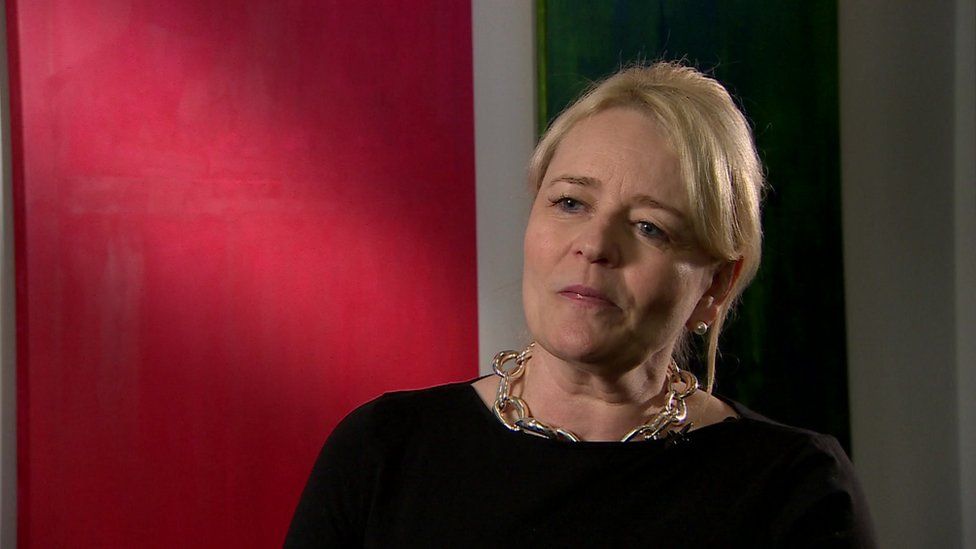ARTICLE AD BOX
By Iain Watson & Sam Francis
BBC Political Stories

Sharon Graham predicts senior Labour MPs will soon return to picket lines
The leader of one of the UK's biggest unions has said Sir Keir Starmer must "be bolder" if Labour is to win the next election.
Sharon Graham, Unite's general secretary, told the BBC she believes that Sir Keir can't "stand still" in order to win power.
She said the Labour leader "made a mistake" by advising his most senior MPs to stay away from picket lines.
And she has called for him to "come out for workers in a very strong way".
While Liz Truss and Kwasi Kwarteng's mini-budget has created "clear blue water" with Labour, Ms Graham said she believed Sir Keir needed, in his own way, to be as bold as his Conservative opposite number.
"It's time to give an alternative, it's time to drive the change," she said.
Ms Graham became Unite general secretary last year. The union - previously led by Len McCluskey - has been one of Labour's biggest financial backers, and has threatened to cut that funding off.
Ms Graham has met Sir Keir this week, ahead of the party's annual conference in Liverpool, and said she was reassured that he wanted to pursue worker-friendly policies.
But she said that actions speaks louder than words.
"Jam tomorrow does not pay the bills as far as workers are concerned.
"Today is the time they are struggling. Today is the time they are on the picket line.
"Today is the time they want Labour to put their arm around them."
Image source, Getty Images
Image caption,Labour will open the party's four-day conference in Liverpool on Sunday
Sir Keir sacked Sam Tarry, a shadow transport minister after he joined rail workers on the picket line in July, and gave an unauthorised media appearance.
The official line was Mr Tarry was sacked for "making up policy on the hoof".
Ms Graham conceded that having MPs on picket lines was unlikely to make a difference to the outcome of a dispute, but discouraging attendance, she maintained, sent the wrong political signal.
"By saying do not have Labour politicians on picket lines, what you're really saying is picket lines are bad," she said.
"Picket lines are where workers go when there's nowhere else to go."
And she predicted that more shadow ministers were likely to join picket lines in future.
Policies not personalities
The Unite leader said she believed the "personality politics" of the Johnson era was over and there is now a clearer clash of ideas.
"This is a moment," she said, with her calls for "boldness" going much further than shows of solidarity with striking workers.
Ms Graham is also pushing for the nationalisation of the energy companies.
A motion intended for this week's Labour conference on common ownership has been ruled out of order - meaning it will not be debated - but she is determined to pursue the point, with Unite officials drawing up a "business case" for public ownership.
"Surely us owning our own energy and us owning our own water has to be the right way forward," she said.
"The reality here is we have to be bold. Don't worry too much about what the focus groups are going to say."
Unite gave £3m to Labour ahead of the last general election in December 2019 and pays more than £1m each year to the party in affiliation fees.
More strikes
Ms Graham said future funding was conditional on Labour "working on behalf of workers".
"We're affiliated to Labour because the deal is we speak up for workers in the workplace and they speak up for workers in Parliament," she said.
Maintaining the affiliation with Labour is debated at a union conference every July.
Despite a summer with "unprecedented levels of disputes", Ms Graham predicts more strikes to come this year.
"What's happening now is workers are pushing back," she said.
In most situations strikes happen "not because workers want them", Ms Graham said, but because "employees have the ability to pay and are asking workers to take a pay cut".
Her staff are going through company accounts "forensically" and she will push for higher pay wards where she believes businesses can afford it.
She said part of her strategy is what she calls "strikes plus" - putting pressure on companies to settle disputes not just through industrial action but by trying to influence their shareholders too.
She claims to have won more than eight out of 10 disputes, and said he may not be in attendance at Labour's conference if she is needed in an ongoing dispute.
'Jump the hurdle'
On Friday, Chancellor Kwasi Kwarteng announced plans to change the rules around workers' ability to strike.
Minimum service levels are to be brought in "to stop militant trade unions" closing down transport networks during strikes, Mr Kwarteng announced.
Unions will also be required to put all pay offers to a member vote before a strike can be held.
Ms Graham accuses Kwasi Kwarteng and Liz Truss of trying to "curtail the rights of workers"
Government proposals to tax strike pay will be met by increasing the union's strike funds.
"They're doing this because they want to curtail the rights of workers," Ms Graham argued.
Unite is planning a legal challenge to some of the proposed changes to union legislation.
"But the real way you challenge this is industrially," Ms Graham said.
"Whatever's thrown at us, we're going to jump the hurdle."

 2 years ago
27
2 years ago
27








 English (US)
English (US)